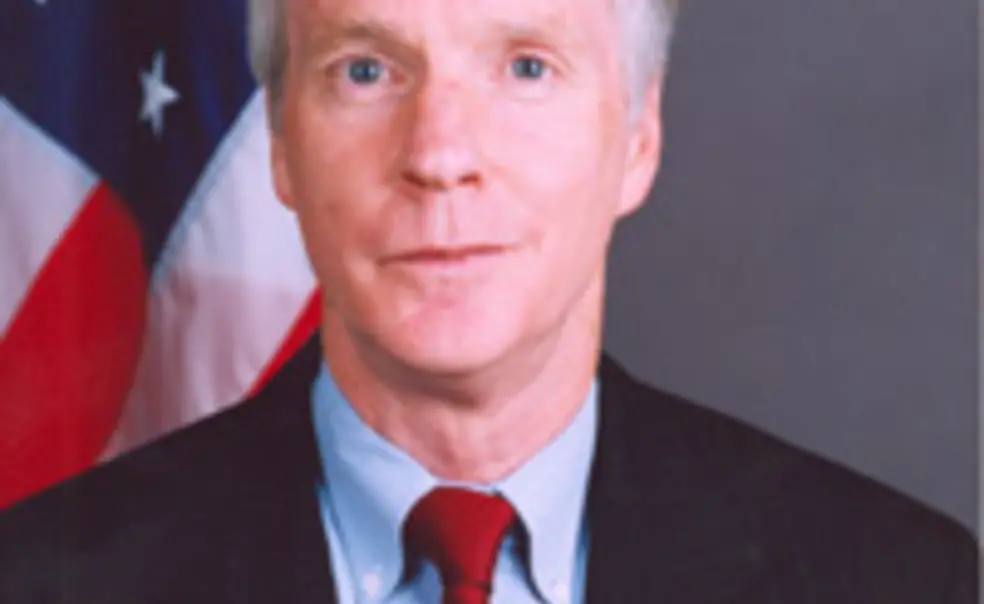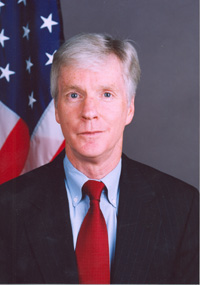At Wilson School, Crocker *85 critiques 'pull back ... pivot to Asia' policy
Ryan Crocker *85, career ambassador with the U.S. Foreign Service, cautioned against a shift towards “neo-isolationism” at the Woodrow Wilson School’s annual colloquium May 4.
“I worry about the increasing mood in the administration of ‘pull back, fix our own problems, and if we’re going to do something, pivot to Asia,’” said Crocker. “If you pivot to Asia, you expose a very important part of your anatomy to the Middle East, which is probably going to bite it very hard.”
This year’s colloquium, on “Challenges to U.S. Policy in the Middle East,” drew 175 graduate alumni and their guests and featured several prominent speakers, including former Sen. George Mitchell, the U.S. special envoy for Middle East peace from 2009-11, who delivered Friday’s keynote. Crocker, who spent four decades in the Foreign Service and served as ambassador throughout the Middle East, most recently in Afghanistan, spoke during the Saturday keynote address.
Crocker said that his experience left him with two lessons: Be careful what you get into, but be just as careful of what you get out of. “Disengagement can have consequences as great and grave as getting in in the first place,” Crocker said.
The greatest challenge facing the current administration is Pakistan, he argued, with nuclear weapons, instability, and a government willing to support the Taliban “as a hedge against U.S. withdrawal.”
The history of Western intervention and impatience taught leaders in the region a key lesson: “cause them pain and they will go,” Crocker said. “The challenge is to convince them that this time, we’re in it for the long haul.”
In Syria, Crocker cautioned against counting the Assad regime out too soon. Drawing red lines — like the U.S. policy on use of chemical weapons — only works if you can assure in advance that you can deliver on them, Crocker said. He argued the only way the conflict in Syria will be settled, if settled at all, is through a diplomatic solution involving the U.S., Russia, Iran, and other regional states.
“We’re seeing a deeply disturbing trend in sectarian politics, and I think this calls out for U.S. influence,” Crocker said. “We may be a shrinking giant but a giant nonetheless, and our diplomatic weight, when we choose to use it, still counts for a great deal.”
Read more: Ryan Crocker *85’s August 2011 Q&A with PAW













No responses yet